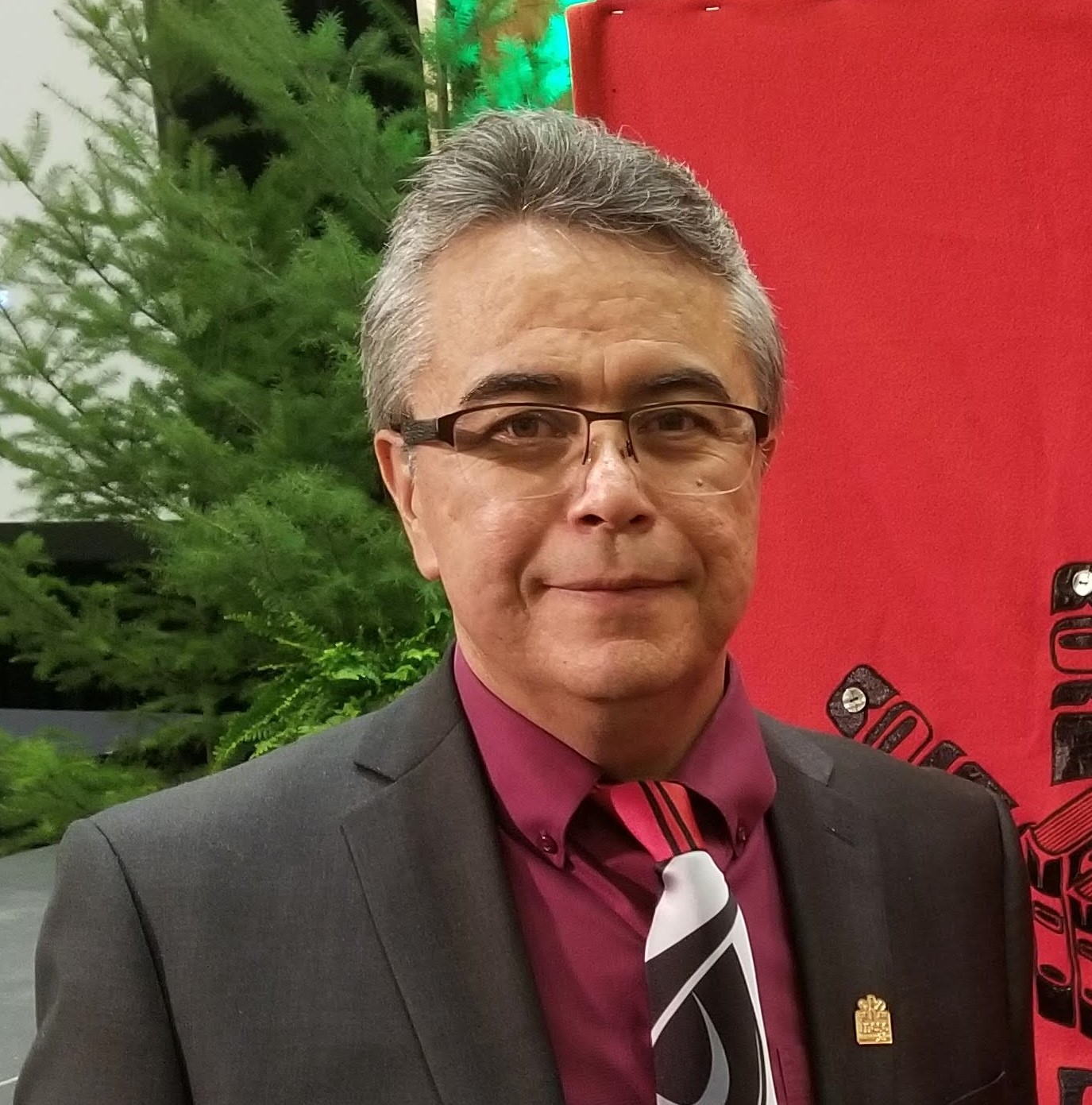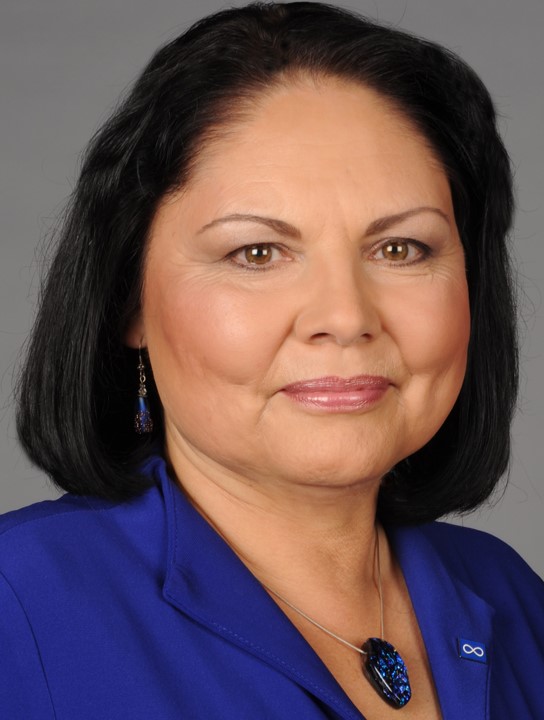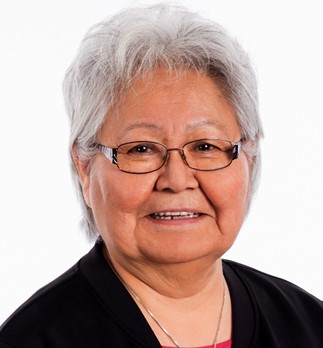Appendices
Appendix A: Biographies
Board of Director
Cassie Doyle,
Chairperson

Cassie Doyle has had a distinguished career in the public service, where she served at the executive level of all three orders of government in Canada, including as Deputy Minister of Natural Resources Canada. She has gained a deep understanding of natural resource and environmental governance and management and has a strong track record of effective partnerships with non-governmental organizations, industry, First Nations, governments and academia. Ms. Doyle was recently the Chair of the Expert Panel on Integrated Natural Resource Management conducted by the Council of Canadian Academies and a Board Member of the Alberta Energy Regulator
George Veghh,
Vice-Chairperson

Mr. Vegh is the Head of McCarthy Tétrault’s Toronto energy regulation practice and co-leader of the firm’s national energy regulatory practice. George is an Adjunct Professor of energy law and regulation at the Munk School of Global Affairs and Public Policy as well as the University of Toronto Law School, Mr. Vegh was previously General Counsel at the Ontario Energy Board.
Alain Jolicoeur, Director

Alain Jolicoeur has served as a temporary member on the National Energy Board since 2016. He has more than 30 years of experience as an executive in the federal public service, including as the former President of the Canada Border Services Agency. Mr. Jolicoeur holds a Master of International Law and Customs from the University of Canberra, as well as degrees in Physics Engineering and Meteorology. He also holds an Institute of Corporate Directors Certificate from the Rotman School of Management.
Ellen Barry, Director

Ellen Barry is a former Deputy Minister with the Province of New Brunswick. As a career public servant she served as Deputy Minister with the Departments of Tourism & Parks, Wellness, Culture and Sport and the Department of Human Resources. Previous to these assignments, she served as Assistant Deputy Minister in the Department of Natural Resources and Finance. Her public service experience has provided her the opportunity to work extensively with multi-stakeholder groups. Since her retirement, Ms. Barry has worked on consulting assignments in New Brunswick as well as with the Institute of Public Administration (IPAC). She is a graduate of the University of New Brunswick.
Melanie Debassige, Director

Melanie Debassige has over 20 years of experience in Indigenous Economic Development and is a certified corporate director. She is currently employed as the Executive Director of the Ontario First Nations Technical Services Corporation and serves on the Board of Directors of the Ontario Clean Water Agency. She previously served as Chief of Staff for the British Columbia Assembly of First Nations and was an elected official with the M’Chigeeng First Nation. Ms. Debassige holds a Master of Business Administration from Cape Breton University and is a graduate of the Directors Education Program at the Institute of Corporate Directors and Rotman School of Management
Karim Mahmud, Director
Karim Mahmud has enjoyed a 30 year career as a leading energy lawyer in Canada and overseas. Originally from Alberta, and following law degrees at Oxford and Dalhousie Universities, Mr. Mahmud has practiced in major law firms in Calgary, London, Hong Kong, and Dubai. Most recently, he was partner and Head of Energy & Infrastructure for EMEA for a major international law firm. He has extensive experience in executing major energy, infrastructure, and privatization projects in Canada as well as over 45 countries overseas. This has included structuring innovative Indigenous investment partnerships and sustainable ESG compliant project structures.
François Tanguay, Director

François Tanguay has been involved in environmental work for over 45 years. Co Founder of Friends of the Earth Québec, he was executive director for Greenpeace Quebec from 1992 to 1997, where his work centered on climate change issues.
Nominated as an administrative judge to the Quebec Energy Board in 1997, M. Tanguay served until 2007. He was then named Chair of the Quebec Energy Efficiency Agency. In 2008, he was asked by the Quebec Minister of Natural Resources to help put up a coalition for the promotion of wood in all sectors of construction. As director and main spokesperson of the Coalition Bois Québec, M. Tanguay worked closely with all levels of decision makers and investors.
M. Tanguay was nominated in July 2011 for a 30-month mandate to Quebec’s Special Committee for a Strategic Evaluation Assessment on shale gas. In recent years he has worked on humanitarian projects in South Africa and with Oxfam-Québec in Peru.
Author of essays on environmental issues, including three on ecological housing, M. Tanguay was for five years columnist for The Sherbrooke Record on environmental issues. He has served as advisor to elected officials, private business, and labor unions.
Chief Executive Officer
Gitane de Silva, CEO

Ms. De Silva became the Chief Executive Officer of the CER in August 2020. Prior to joining the CER, she was a Special Advisor at TransAlta Corporation. She previously served as Alberta’s Senior Representative to the United States and as Deputy Minister for Alberta International and Intergovernmental Relations. Before joining the Alberta Public Service, Ms. De Silva spent 12 years in Canada’s Foreign Service as a specialist in Canada-U.S. relations, serving in a variety of roles, including as Consul General of Canada in Chicago and as Counsellor (Environment & Fisheries) at the Canadian Embassy in Washington, D.C. Ms. De Silva also served as Deputy Head of Agency at Status of Women Canada. Professional Affiliations, Degrees and Distinctions: Bachelor of Arts, International Relations, University of British Columbia 2013, recipient of The International Alliance for Women (TIAW) World of Difference Award.
Indigenous Advisory Committee
Tribal Chief Tyrone McNeil, Chairperson

Tribal Chief Tyrone McNeil is Stó:lo and a member of Seabird Island Band. He has extensive experience working to advance First Nations languages and education, collaborating with First Nations across the country, and developing agreements and partnerships with government. Tribal Chief McNeil manages a First Nation construction company that employs up to 70 Indigenous men and women, with expertise in Operational Health and Safety, safety audits, human resources management, operations and budgeting in civil construction and pipeline industries.
Tribal Chief McNeil works closely with the Indigenous Advisory and Monitoring Committee (IAMC) for the Trans Mountain Expansion and Existing Pipeline, including as a member of several leadership and subcommittees, driving changes to improve practices of regulators to better align with the United Nations Declaration on the Rights of Indigenous Peoples, and to advance reconciliation. He holds numerous leadership positions including, Tribal Chief Stó:lo Tribal Council, President of First Nation Education Steering Committee, AFN Chiefs Committee on Education rep for BC, Chair of Emergency Planning Secretariat, Chair of Seabird College, President of the Sqewqel (Seabird) Development Corporation and Standing Chair of Union of BC Indian Chiefs.
Tribal Chief Tyrone McNeil is an active hunter, fisher and gatherer and looks forward to teaching his four grandchildren as he has been taught and learned.
Kaella-Marie Earle, Vice-Chairperson

Kaella-Marie Earle is an Anishinaabekwe from Wiikwemkoong Unceded Territory and Aroland First Nation. She is currently employed as an EIT at Enbridge Gas Inc. in Engineering Construction, System Improvement where she manages construction of natural gas pipeline projects. She holds an Advanced Diploma in Chemical Engineering Technology from Cambrian College as well as a Bachelor of Chemical Engineering from Laurentian University.
Ms. Earle’s career goal is to weave her Indigenous cultural values into her engineering work in a way that will lead the oil and gas industry to a lower carbon energy future. She works toward this as a member of Young Pipeliners Association of Canada where she serves as Co-chair of YPAC’s Indigenous Inclusion Committee.
Ms. Earle delivers regular speaking engagements at conferences to advocate for Indigenous people and women in energy and mining, is the Director and Founder of Maamiwi Gibeshiwin Indigenous cultural training and allyship retreat, and is a delegate on the NWMO Indigenous Council of Youth and Elders.
Marie Delorme

Dr. Marie Delorme is CEO of The Imagination Group of Companies. She serves on the National Indigenous Economic Development Board, the Queen’s University Board of Trustees, Donner Canadian Foundation, the Canadian Energy and Climate Nexus, and The Canadian Centre to End Human Trafficking. She is also an advisor to two Universities.
Dr. Delorme is a Member of the Order of Canada. She has received the Indspire Award in Business and Commerce; and was named as one of Canada’s 100 Most Powerful Women. Other awards include: the University of Calgary Dr. Douglas Cardinal Award; Alberta Chamber of Commerce Business Award of Distinction; Calgary Chamber of Commerce Salute to Excellence Award, and Métis Nation Entrepreneurial Leadership Award.
Dr. Delorme holds a Bachelor of Science degree, a Master of Business Administration from Queen’s University, and both a PhD and an Honorary Doctor of Laws from the University of Calgary.
Judy Gingell

Ms. Judy Gingell is an Elder of the Kwanlin Dun First Nation and is from the Gaanaxteidi Raven Clan. She has worked to advance Indigenous rights within the Yukon and across Canada for more than 40 years, playing instrumental leadership roles in self-governance and land claims negotiations with the Government of Canada.
As the first female Chair of the Council of Yukon First Nations, Ms. Gingell facilitated the discussion among Yukon First Nations towards the signing of the Umbrella Final Agreement, a foundation for advances in self-governance. In 1995, she became the first Indigenous Commissioner of the Yukon Territory. Ms. Gingell sits on several Boards, including Yukon University and Aboriginal Peoples Television Network, and serves as Elder Representative on Kwanlin Dun First Nation Council. She is a Member of the Order of Canada and a recipient of the Queen Elizabeth II Diamond Jubilee Medal.
Chief Harvey McLeod

Chief Harvey McLeod is Chief of the Upper Nicola Indian Band, Executive Director for the Interior Salish Employment & Training Society, and has nearly 40 years of executive, political and relationship and partnership development experience.
Chief McLeod sits on several Committees and Boards, including as a Director of the BC Assembly of First Nations, and is one of five Nicola Chiefs currently working with the Province of British Columbia to co-manage the Nicola Watershed. Chief McLeod has been extensively and directly involved in the development and operations of the Indigenous Advisory Monitoring Committee (IAMC) for the Trans Mountain Expansion and Existing Pipeline.
Nuka Olsen-Hakongak

Nuka Olsen-Hakongak is a Nunavut Inuk originally from Cambridge Bay who now resides in Iqaluit. Ms. Olsen-Hakongak is currently working through a Juris Doctor Degree with the Nunavut Law Program of the University of Saskatchewan College of Law affiliated with Nunavut Arctic College. She has also worked with Nunavut Tunngavik Incorporated where she focused on legal research and worked closely with senior legal counsel on Article 23 matters. Article 23 of the Nunavut Agreement is to increase Inuit participation in government employment in the Nunavut Settlement Area to a representative level. Prior to that, Ms. Olsen-Hakongak has held roles with the Government of Canada and the Government of Nunavut, and has worked in the fields of social services, community justice, income assistance, and child and youth support.
Ms. Olsen-Hakongak holds a Social Service Worker Diploma and received, as part of that program, the award for Community Involvement and awards for Academic Excellence. She is the Co-President of the Nunavut Law Student Society
Scott Patles-Richardson

Mr. Scott Patles-Richardson is the founder of Indigenous Financial Solutions, a First Nations-owned company focused on economic development for Indigenous communities across Canada. He has extensive experience advising Indigenous communities, corporate finance, mergers and acquisitions, and has negotiated for First Nation and Métis communities in the area of land claims and Impact Benefit Agreements, specific to energy and resource development projects.
Mr. Patles-Richardson is also the CEO of an Indigenous private-equity fund, Métis Infinity Investments, and is the majority shareholder of Nations Translation Group (NTG) and acts as their Executive Chair. NTG is one of Canada’s largest privately-held translation companies and is 100% First Nation owned and controlled with the balance of the shares held by the Little Red River Cree Nation’s investment arm. He has previously worked in leadership roles with Ishkonigan Consulting and Mediation, Tribal Council Investment Group of Manitoba, Scotiabank, and Royal Bank of Canada. Mr. Patles-Richardson is a Mi’gmaq citizen from Pabineau First Nation in northern New Brunswick of which he has been active as a key senior advisor.
Chief Matthew T. Peigan

Chief Matthew T. Peigan is Chief of the Pasqua First Nation. Chief Peigan is the youngest of 5 boys to parents Ronald Peigan Sr. and Grace L. Peigan. He was first elected in 1993-2001 and again in 2011, currently serving a fifth consecutive term. Upon his initial election in 1993, Chief Peigan was the youngest serving Chief in Canada at just 26. Chief Peigan has also served as Director of Operations and Housing Coordinator with Pasqua First Nation, and as Flood Claim Lead Negotiator for other First Nations.
Chief Peigan has been very active in engaging with industry as well as in interventions before the Canada Energy Regulator (formerly National Energy Board), including but not limited to the Energy East Project and Enbridge Line 3 Replacement Project. Chief Peigan is also a member of the Indigenous Advisory and Monitoring Committee (IAMC) for the Enbridge Line 3 Replacement Project. Chief Peigan is committed to both his home First Nation and to the advancement of all First Nations, and is a strong advocate for environmental, air and water protection measures. Chief Peigan was nominated to sit as a member of the Indigenous Advisory Committee by the Assembly of First Nations.
Marci Riel

Marci Riel is the Senior Director of Energy, Infrastructure and Resource Management at the Manitoba Metis Federation (MMF). The department was created by the Metis government in Manitoba to address the development and management of energy projects and infrastructure constructed on lands utilized by the citizens and harvesters of the Manitoba Metis Community. The amalgamated department also manages the MMF’s Resolution 8 engagement and consultation process and lands management files as well as the natural resources and conservation portfolios related to harvesting, environmental assessment, Metis monitoring, forestry, mining, migratory birds, commercial fisheries, wetland restoration, fish and fish habitat, environment and climate change.
Marci is not an elected representative of the Metis Nation. Her role on the Line 3 - Indigenous Advisory and Monitoring Committee is to best represent the needs of the citizens of the Metis Nation’s Manitoba Metis Community and to assist Canada and the Canada Energy Regulator (CER) in better understanding the lifecycle impacts of projects on the collectively held rights, claims and interests of the Metis Nation. Ms. Riel holds a Master’s Degree in Sociology and prior to joining the Manitoba Metis Federation in 2011, Marci worked in the field of public safety and crime prevention.
Marci is the mother of two active teenage boys and together with her husband Kevin is proud to be raising the next generation of citizens of the Metis Nation. Marci lives in Winnipeg, Manitoba – in the heart of the Homeland of the Metis Nation – on one of the original Red River lots next to the historic Riel House site.
Appendix B: Financial Overview7
The CER and its predecessor, the NEB, is funded through parliamentary appropriations with approximately 99% of its costs recovered by the Government of Canada from the industry the CER, and formerly the NEB, regulates. Financial statements are prepared annually and audited by the Office of The Auditor General of Canada (OAG). The table below provides an overview of CER financial and human resources, as reported in the public accounts.
| Fiscal Year (1 April to 31 March) | Expenditures (Million $) | Staff (Full-time Equivalents) |
| 2015-168 | 82.4 | 457.6 |
| 2016-17 | 84.6 | 474.5 |
| 2017-18 | 93.8 | 481.3 |
| 2018-19 | 108.1 | 476.5 |
| 2019-209 | 98.0 | 494.0 |
| 2020-21 | 99.83 | 522.0 |
Appendix C: Service Standards Results
Service standards are not set out in legislation, although some of the CER’s service standards apply to applications that are also subject to the legislated time limits.
Service standards are established for service delivery so that applicants and participants know what to expect and the CER’s performance can be measured and reported. They identify specific delivery targets or timelines for key services.
2020-21 Service Standard Results:
| Service Standard | Measure | Target | 2020-21 Result |
| Participant Funding | 80% of funding decisions are provided within 30 days of a complete application or application deadline. | 80% | 100% |
| Recommendation/Decision following a public hearing | 80% of Reasons for Recommendation/Decision completed within 12 weeks following the close of record of a public hearing (all) | 80% | 83% |
| Export/ Import Authorizations | 80% of short-term order decisions made within two working days (excludes renewals) of receipt of a complete application | 80% | 98% |
| Electricity Export Permits |
80% of decisions released within target following the completion of the Notice of Application/Directions on Procedures period:
|
80% | 87% |
| Landowner Complaints | 100 % of responses with initial course of action to land matter complaints back to initiator within 10 calendar days | 100% | 100% |
80% of complaints are resolved or closed by the target date from received date:
|
80% | 95% | |
| Onshore Pipeline Regulations and Processing Plant Regulations Audits | 80% of draft audit reports will be sent to the audited company within 12 weeks of field work completion | 80% | 100% |
| 80% of the final audit reports will be sent to the audited company within 12 weeks of receiving the audited company’s comments on the draft report | 80% | 100% | |
| Financial Audits10 | 80% of draft financial audit reports will be sent to the audited company within eight weeks of field work completion | 80% | N/A |
| 80% of final financial audit reports will be sent to company within three weeks of receiving the audited company’s comments on the draft report | 80% | N/A | |
|
Non-hearing: NEB Act Section 58 CER Act Section 214 |
80% of decisions released by the target date from the application complete:
|
80% | 100% |
| Canada Oil and Gas Operations Act Applications |
Decisions are made by target date:
|
80% | 100% |
| Canada Petroleum Resources Act Applications | 80% of decisions will be made in 90 days from the day that all information is available to complete the evaluation process. | 80% | N/A11 |
| Library Requests | 90% of requests responded to within one working day. | 90% | 97% |
To learn more about the CER’s Service Standards refer to the website under CER Time Limits and Service Standards.
Appendix D: Regulations
The Canada Energy Regulator operates under a variety of acts, regulations, rules and guidance notes. The authority to make regulations, as specified in various sections of the CER Act, may be the Governor in Council (GIC), the Minister of Natural Resources (Minister), or the CER.
Note that regulations made pursuant to the National Energy Board Act (NEB Act) continue to apply until they are repealed or replaced, to the extent that they are consistent with the CER Act.
No new regulations came into force in 2020-21.
To learn more about the CER’s Regulatory Framework refer to the CER’s website
Information about the CER’s planned initiatives to improve the Regulatory Framework can be found on the CER’s website under Regulatory Framework Plan.
Appendix E: Audits
Audits evaluate how a company manages its activities. We expect every company we regulate to have management systems and protection programs that are effective and work well. Companies that manage their activities well can better anticipate, prevent, and mitigate issues that can affect safety, security, and the environment.
After an audit is done, a report is made public. We expect all companies to consider and review the findings in these reports and use them to improve their management systems.
Management System Audits Conducted in 2020-21:
| File Number | Last Updated | Issued By | Description | Recipient | Region/Facility |
|
CV2021-479 [PDF] OF-Surv-OpAud-E284-2020-2021 0101 |
2021-04-13 | CER | Annual Report | Enercapita Energy Ltd. | Canada |
|
CV2021-478 [PDF] OF-Surv-OpAud-C933-2020-2021 0101 |
2021-03-26 | CER | Annual Report | Cenovus Energy Inc. | Canada |
|
CV2021-477 [PDF] OF-Surv-OpAud-P108-2020-2021 0101 |
2021-04-08 | CER | Annual Report | Pembina Pipeline Corp. | Canada |
|
CV2021-476 [PDF] OF-Surv-OpAud-A083-2020-2021 0101 |
2021-03-26 | CER | Annual Report | ARC Resources Ltd. | Canada |
All operational audit reports and related documents can be found on the CER’s website under Reports on Compliance and Enforcement.
The CER considers financial regulatory audits to be an important regulatory tool to ensure compliance with the Canadian Energy Regulator Act, regulations, orders, and decisions, as well as documenting companies’ current operations, management systems, procedures and internal controls.
Objectives of financial regulatory audits are:
- To determine whether the company has complied with the CER Act, regulations, decisions, toll orders and other accounting and reporting directives.
- To verify that the financial information contained in various company applications or submissions to the CER agrees with the company’s records.
- To examine whether cross-subsidies have occurred.
- To obtain information on the company’s current operations, management systems, procedures and internal controls.
In 2020-21, no financial regulatory audits were completed and one financial regulatory audit commenced, which is presently underway. This audit examines the calculation of the absolute liability limits (A.L.L.) of several pipeline companies regarding their Financial Resource Requirements to confirm it has been calculated correctly in accordance with the Pipeline Financial Requirements Guidelines. The A.L.L. financial regulatory audit is expected to be completed during the 2021-22 fiscal year.
All financial regulatory audit reports and related documents can be found on the CER’s website under Financial Regulatory Audit Reports.
Appendix F: Inspection Officer Orders in Effect
Inspections are a check at one point in time that a company is meeting requirements in acts, regulations, and conditions of a project’s approval, certificate, order, or permit. Inspections focus on one or two areas of a company’s operations.
If a situation requires immediate attention to keep people, property, and the environment safe, we may decide to issue an inspection officer order. The order will require a company to complete certain actions by a set date.
Inspection Officer Orders in issued or in effect for 2020-21
| File Number | Date Issued | Issued By | Description | Recipient | Region/Facility |
| DRP-001-2021 | 2021-03-11 | CER | Missing labels on isolation points/valves and drawings which is not in conformance with the company’s equipment naming standard.
Status: Active |
Express Pipeline Ltd | Hardisty, AB |
| DM-001-2021 | 2021-02-02 | CER | Failure to provide certification of worker supplied breathing air quality.
Status: Closed |
Many Islands Pipe Lines (Canada) Limited | Pierceland, AB |
| LH-001-2020 | 2021-01-05 | CER | Not following the Trans Mountain COVID-19 Response Plan.
Status: Closed |
Trans Mountain Pipeline ULC | Lower Mainland Region, BC |
| SLM-001-2020 | 2020-12-10 | CER | Not following the Trans Mountain COVID-19 Response Plan. Status: Closed |
Trans Mountain Pipeline ULC | Burnaby, BC |
| RRW-001-2020 | 2020-10-30 | CER | Trans Mountain shall ensure that contracting company, SA Energy Group, immediately cease use and operation of trench boxes until it can demonstrate that they can be used, assembled and disassembled safely. Trans Mountain shall undertake a root cause analysis of the fatality and identify and implement corrective and preventive actions.
Status: Active |
Trans Mountain Pipeline ULC | Edmonton, AB |
| BL-001-2020 | 2020-07-27 | CER | Report of unauthorized activity on Line 10.
Status: Closed |
Landowner | Ontario |
All Inspection Officer Orders and related documents can be found on the CER’s website under Reports on Compliance and Enforcement.
Appendix G: Warning Letters and Administrative Monetary Penalties
Warning Letters
Sometimes, we may decide that it’s important that a senior person in a company is aware of the seriousness of an issue. This person can then take action to stop it from happening again.
Warning Letters issued in 2020-21
| CER Action | Recipient | Description | Date issued |
| Warning Letter | Trans Mountain Pipeline ULC | Non-compliance with s.47.2 of the Canadian Energy Regulator Onshore Pipeline Regulations |
2020-09-10 Warning Letter |
All warning letters can be found on the CER’s website under Reports on Compliance and Enforcement.
Administrative Monetary Penalties (AMPS)
Both companies and individuals can get fined for actions that are unsafe. We may fine a company or individual if:
- serious harm has been caused or is likely to happen
- the nature and severity of the non-compliance is significant
- we need to escalate to a higher level of enforcement
- we need to change behavior to prevent an issue from happening again
There were 3 AMPs issued in the period from 1 April 2020 to 31 March 2021.
| Reference Number | Last Updated | Recipient | Region/ Facility | Description | Penalty Amount |
| AMP-001-2021 | 2021-03-12 | Trans-Northern Pipelines Inc. | Ontario | Failure to have an adequate Environmental Protection Program, particularly related to contaminated sites, as required by section 48 of the Onshore Pipeline Regulations | $40,000 |
| AMP-002-2020 | 2020-11-12 | Westcoast Energy Inc. | Near Prince George, BC | Violation of ss. 4(2) of the Onshore Pipeline Regulations – failure to ensure that the pipeline is operated in accordance with the programs, manuals, procedures, measures and plans developed and implemented by the company | $40,000 |
| AMP-001-2020 | 2020-06-25 | Trans-Northern Pipelines Inc. | Oakville, Ontario | s. 29 of the Onshore Pipeline Regulations – Failure to contract for services as prescribed | $40,000 |
All warning letters and AMPS can be found on the CER’s website under Reports on Compliance and Enforcement.
Appendix H: Acronyms and Definitions
AMPS
Administrative Monetary Penalties
CER
Canada Energy Regulator
CER Act
Canadian Energy Regulator Act
IAC
Indigenous Advisory Committee
NEB
National Energy Board
NEB Act
National Energy Board Act
Core Responsibility
An enduring function or role performed by a department. The intentions of the department with respect to a Core Responsibility are reflected in one or more related Departmental Results that the department seeks to contribute to or influence.
Departmental Results Framework
The Departmental Results Framework is a requirement of the 2016 Treasury Board Policy on Results, which supports a culture of measurement, evaluation and innovation in program and policy design and delivery. It is a key tool for tracking and communicating the department’s results and financial information to parliamentarians and the public. It contains a clear and concise overview of what the organization does (core responsibilities), what it is trying to influence (departmental results) and how it will assess progress (departmental result indicators)
For more information on the CER’s Departmental Results Framework refer to the CER’s website.12
Departmental Results Report
A report on an appropriated department’s actual accomplishments against the plans, priorities and expected results set out in the corresponding Departmental Plan.
Performance Measure
A qualitative or quantitative means of measuring an output or outcome, with the intention of gauging the performance of an organization, program, policy or initiative respecting expected results.
Program
Individual or groups of services, activities or combinations thereof that are managed together within the department and focus on a specific set of outputs, outcomes or service levels.
Results
An external consequence attributed, in part, to an organization, policy, program or initiative. Results are not within the control of a single organization, policy, program or initiative; instead they are within the area of the organization’s influence.
Target
Individual or groups of services, activities or combinations thereof that are managed together within the department and focus on a specific set of outputs, outcomes or service levels.
| To Learn More about the CER | ||
| Headquarters Calgary |
210-517 10 Ave SW Calgary AB T2R 0A8 |
Office: 403-292-4800 Toll free: 1-800-899-1265 |
| Regional Eastern - Montréal |
804-1130 rue Sherbrooke O Montréal QC H3A 2M8 |
Office: 514-283-2763 infomontreal@cer-rec.gc.ca |
| Regional Pacific - Vancouver |
219-800 Burrard St Vancouver BC V6Z 0B9 |
Office: 604-666-3975 infopacific@cer-rec.gc.ca |
| Regional Northern - Yellowknife |
P.O. Box 2213 115-5101 50 Ave Yellowknife NT X1A 2P7 |
Office: 867-766-8408 infonorth@cer-rec.gc.ca |
Fax: 403-292-5503
Toll free: 1-877-288-8803
www.cer-rec.gc.ca
info@cer-rec.gc.ca
Follow:
- (7) Detailed information for fiscal year 2020-21 expenditures and human resources can be found in the CER’s 2020-21 Departmental Results Report (DRR). The DRR is expected to be tabled in Parliament in the fall of 2021. Once tabled, the report will be posted on the CER’s website.
- (8) Since the CER came into existence on 28 August 2019, information shown for fiscal years 2015-16 through 2018-19 are for the NEB only.
- (9) 2019-20 results are $10.1 M less than 2018-19 results primarily due to an exceptional remission of green field levy in 2018-19 related to Northern Gateway Pipeline Limited Partnership (NGPL) project certificates issued but later quashed. NGPL requested the levy be refunded and the Federal Government provided off-cycle funding in 2018–19 to enable the NEB to remit the $14,710,000 to NGPL on behalf of the Federal Government.
- (10) In 2020-21, no financial regulatory audits were completed and one financial regulatory audit commenced, which is presently underway.
- (11) No decisions were made in 2020-21.
- (12) https://www.cer-rec.gc.ca/en/about/who-we-are-what-we-do/governance/departmental-results-framework/index.html

